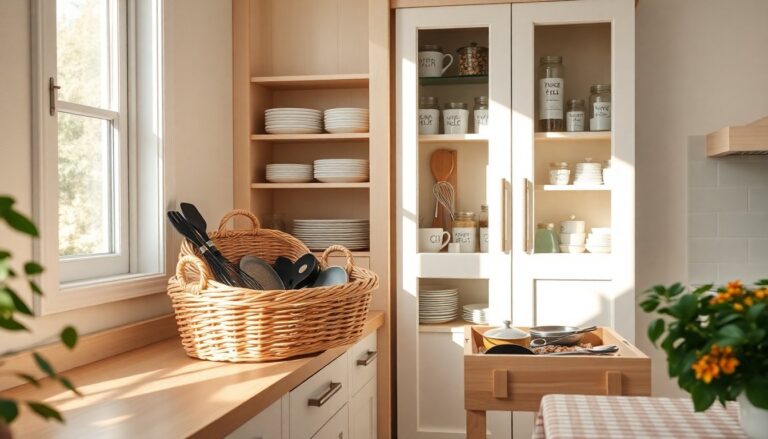Argomenti trattati
Feeling cramped in your living space is a common concern. Many individuals wish for extra room in their closets and cabinets. However, we often possess adequate square footage, which is overwhelmed by items that no longer serve a purpose. A classic example includes a kitchen drawer overflowing with cookie cutters and gadgets that have not been used for years. If baking is not your hobby, why hold onto cutouts for every holiday? A more efficient approach to storage is essential. A quick glance into linen closets, under the bathroom sink, or even wardrobes reveals similar stories of items taking up precious space.
These possessions consume not just physical space but also clutter our mental landscape. As Bridget Urgo, a professional organizer and co-owner of The Settler, points out, “Many people underestimate how much clutter can weigh them down.” Once individuals begin the decluttering process, they often find that their belongings become easier to locate, their thoughts clearer, and they spend less money on duplicates of items they already own.
Items to discard for a more organized home
To help you embark on your journey towards a more organized home, here are several items that professional organizers suggest you can easily part with without feeling regret.
Unused vases and kitchen gadgets
After receiving a beautiful bouquet, it is common to end up with a collection of vases that eventually gather dust in a cabinet. As Maura Fitzgerald, founder of Fitz Just Right, explains, “You’re unlikely to utilize those vases; when it’s time to arrange your own flowers, you’ll reach for the elegant Tiffany vase from your wedding.” Instead of letting these vases collect dust, consider returning them to the florist. Most flower shops are happy to take back vases for reuse.
Similarly, kitchens are often cluttered with gadgets that serve little purpose. For instance, do you really need an apple corer and a mango slicer? As Urgo suggests, “A simple knife will suffice for cutting fruit.” The same goes for trendy appliances that are seldom used. Instant Pots and Vitamix blenders might take up valuable cabinet space. Consider donating these items or checking with local libraries to see if they have a lending program for appliances.
Streamlining electronics and paperwork
Many individuals have a drawer or cabinet filled with outdated electronics, including broken phones and cords for devices no longer owned. We often cling to these items with the thought that we might need them someday, but the truth is, most do not. Before disposing of these devices, remember to wipe them clean of personal data. Once that is done, recycle them properly or consider selling them back to the manufacturer for credit towards a new device.
Another area where clutter accumulates is paperwork. Whether it is old receipts, instruction manuals, or children’s school projects, paper can quickly take over your space. Urgo notes that Baby Boomers often accumulate piles of unnecessary paper, while younger families struggle with their kids’ art projects. To manage this, encourage children to select their favorite pieces to keep and take photographs of those that will be discarded to preserve memories digitally.
Excess bags and wrapping supplies
It is astonishing how many reusable grocery bags people accumulate. These bags often clutter mudrooms or closets. Fitzgerald advises, “You really don’t need more than five reusable bags—edit your collection down.” The surplus can be put to good use by carrying donations to local charities or food pantries.
Gift-wrapping supplies can also be a hidden source of clutter. Many people find themselves storing an abundance of ribbons, wrapping paper, and gift tags. Gill recommends investing in a designated wrapping station, such as an Elfa Utility Mesh Gift Packaging Over the Door Rack, to keep supplies organized and manageable.
Cleaning out the clutter and making space
This process also includes getting rid of expired products, broken toys, and old linens. Urgo suggests a simple rule: “If you don’t eat or use it, toss it.” Items like old makeup or expired spices should not linger in cabinets. Paint, too, has a limited shelf life. If you have leftover paint, photograph the label to remember the color and dispose of it responsibly through local recycling programs.
These possessions consume not just physical space but also clutter our mental landscape. As Bridget Urgo, a professional organizer and co-owner of The Settler, points out, “Many people underestimate how much clutter can weigh them down.” Once individuals begin the decluttering process, they often find that their belongings become easier to locate, their thoughts clearer, and they spend less money on duplicates of items they already own.0

